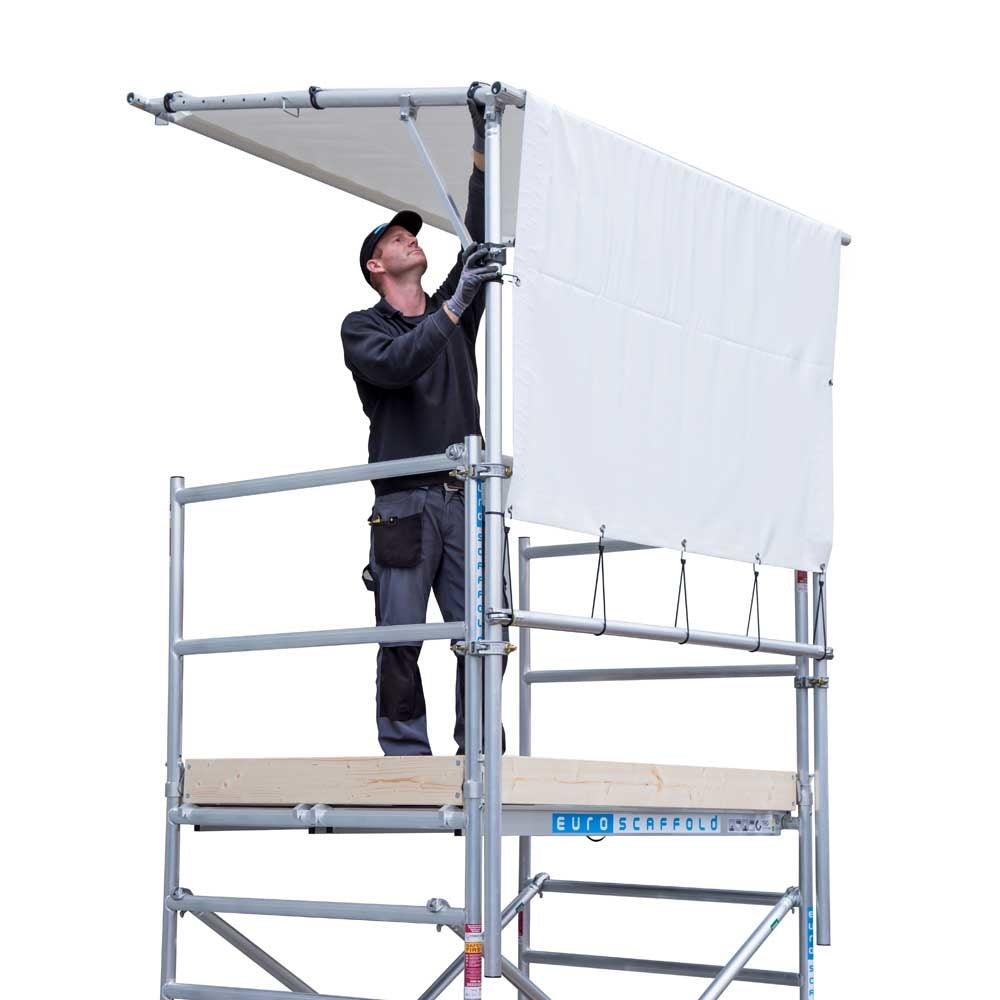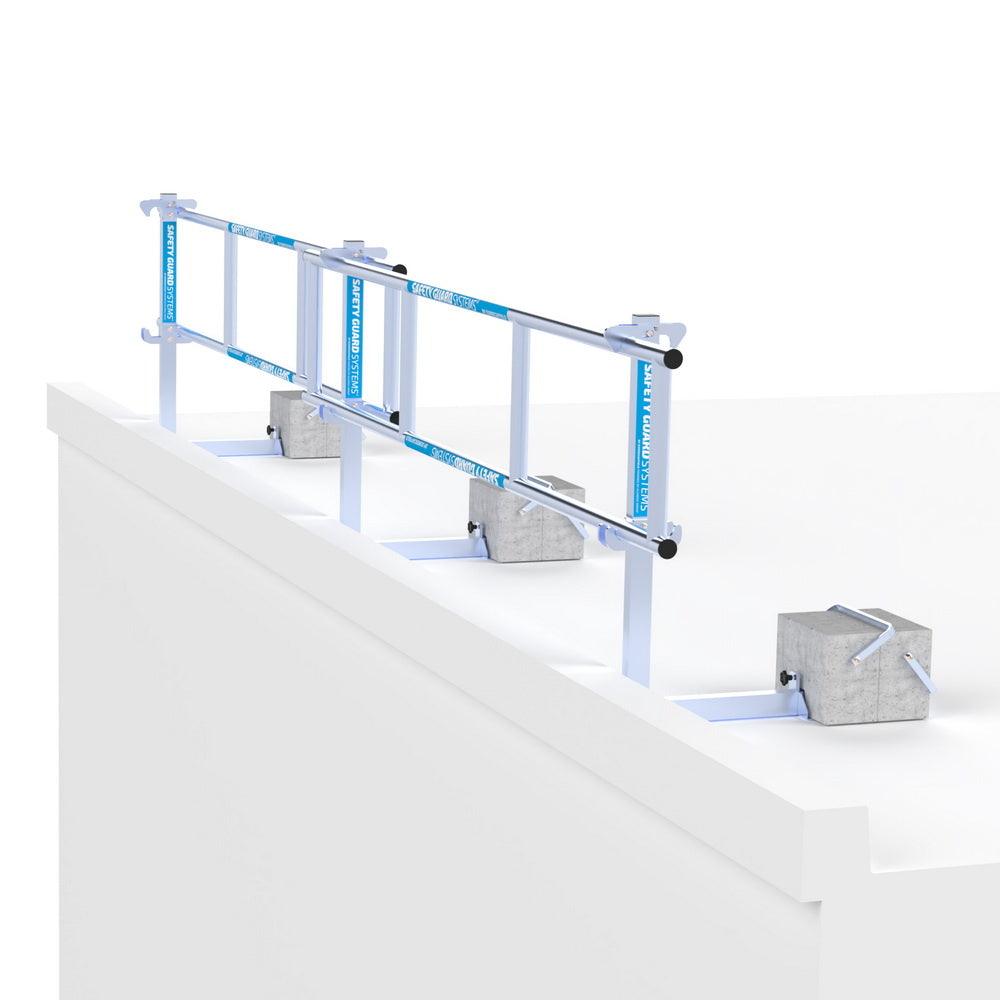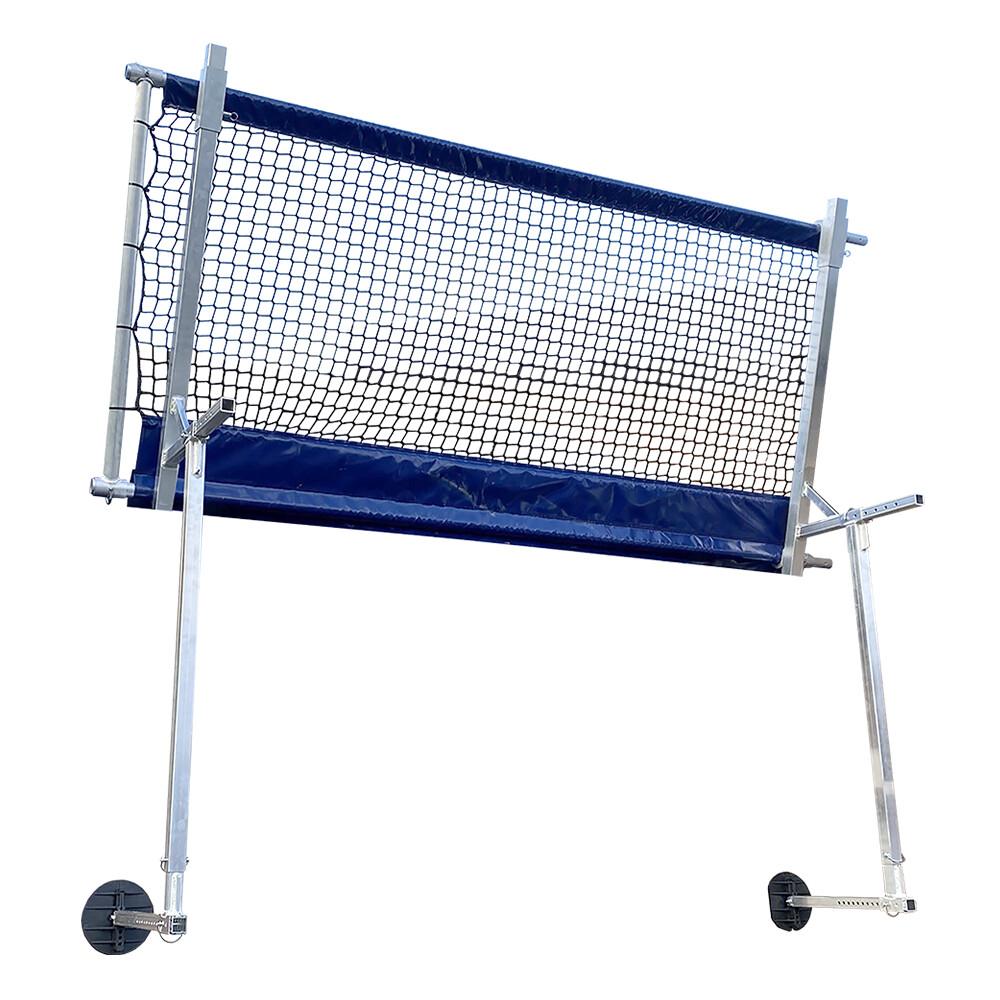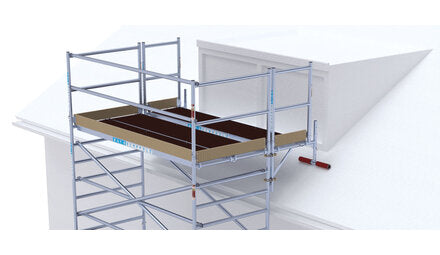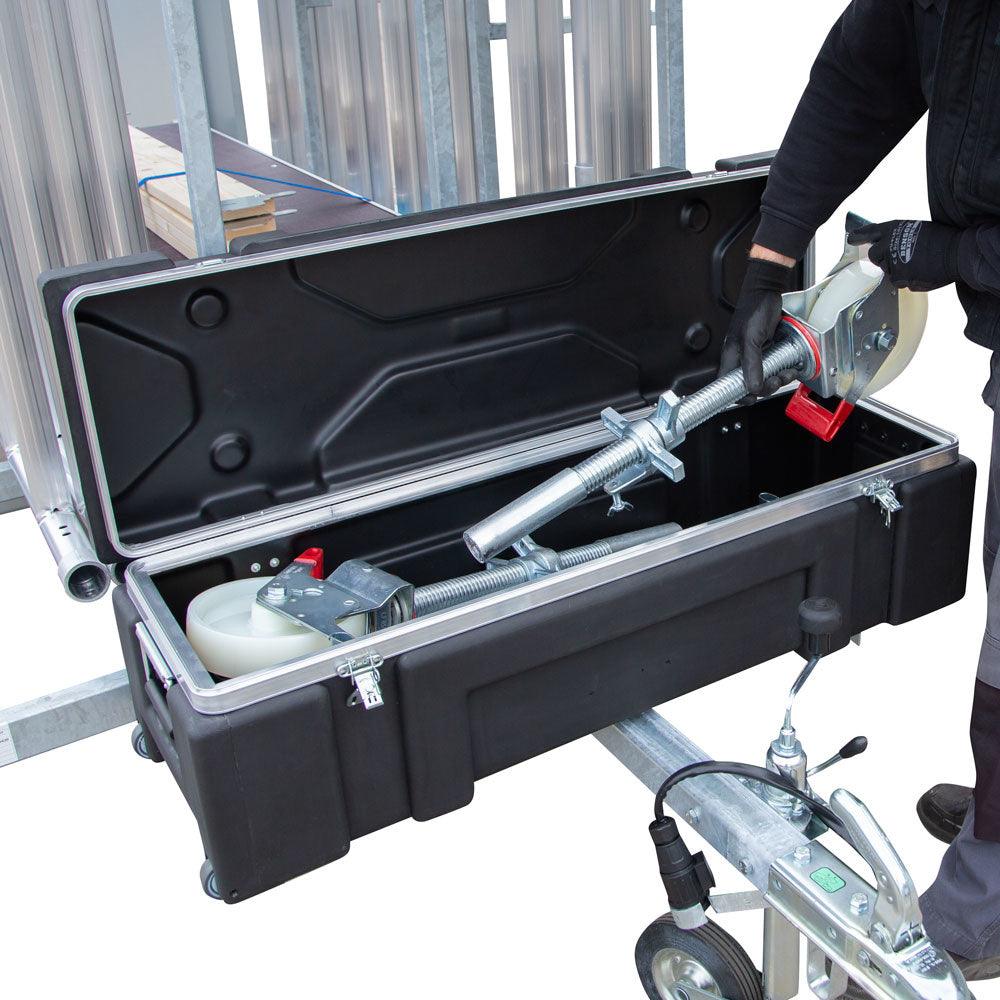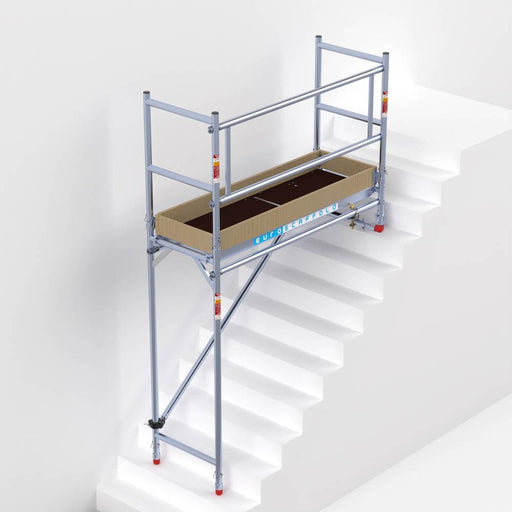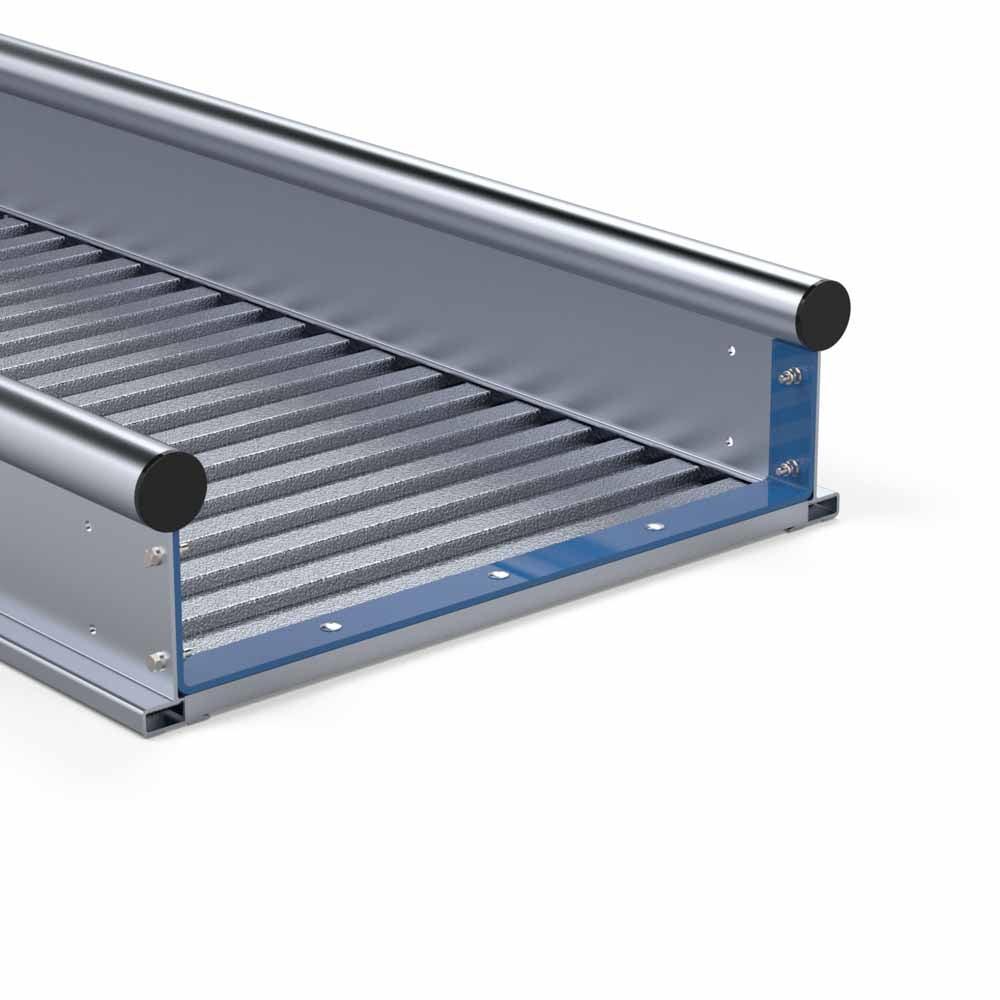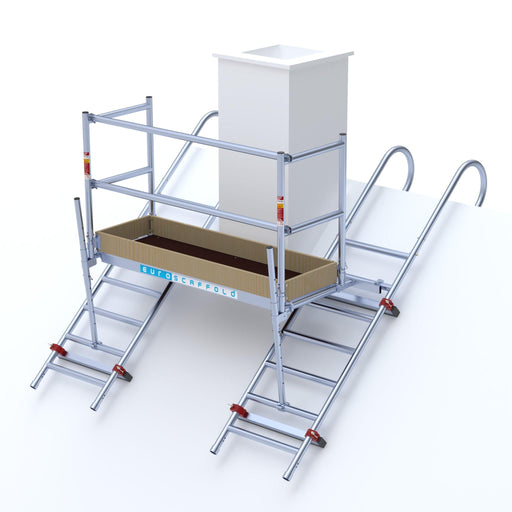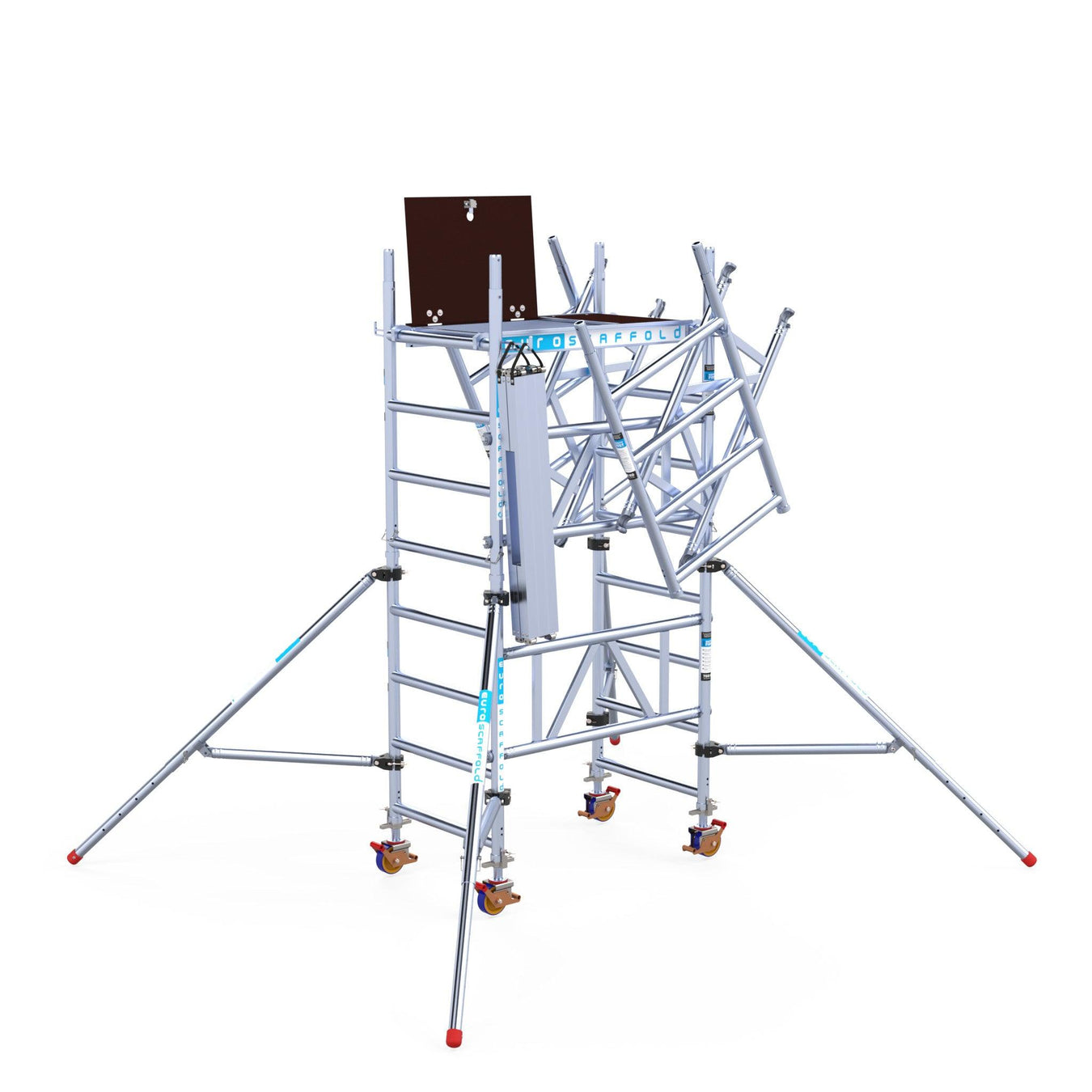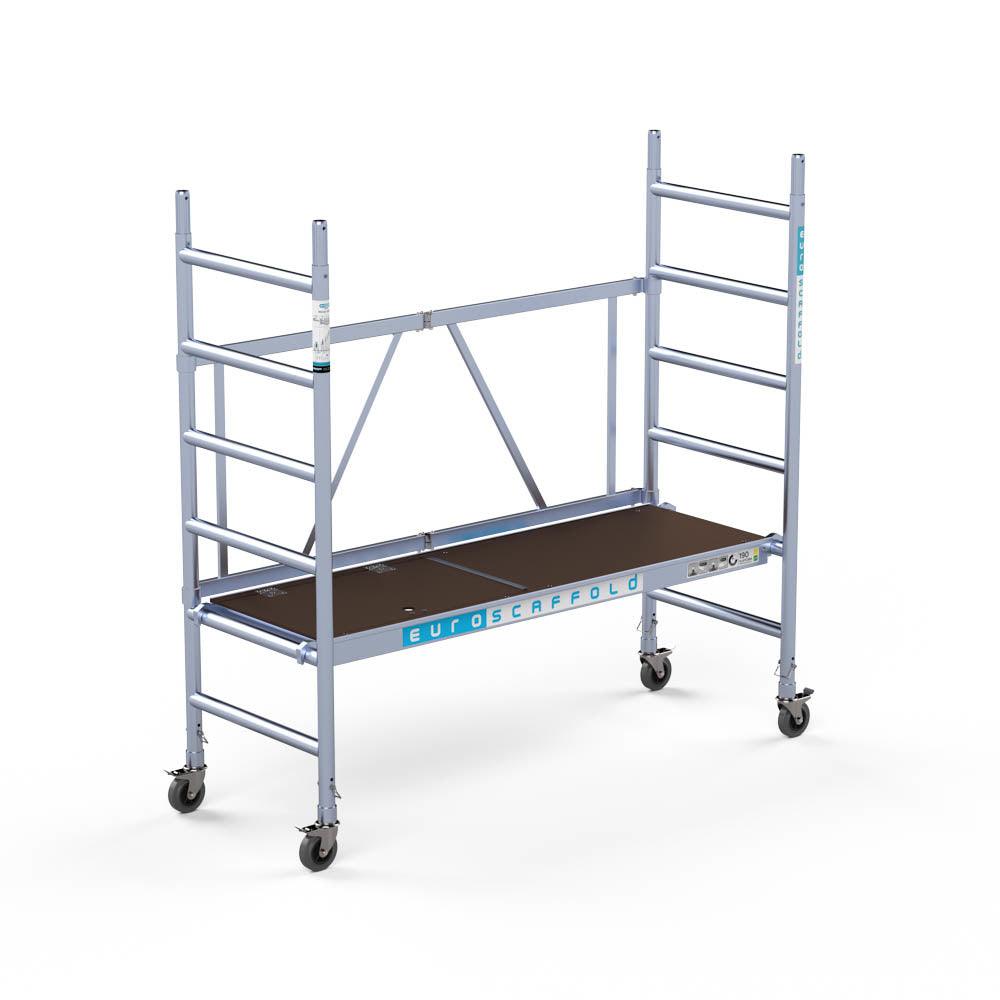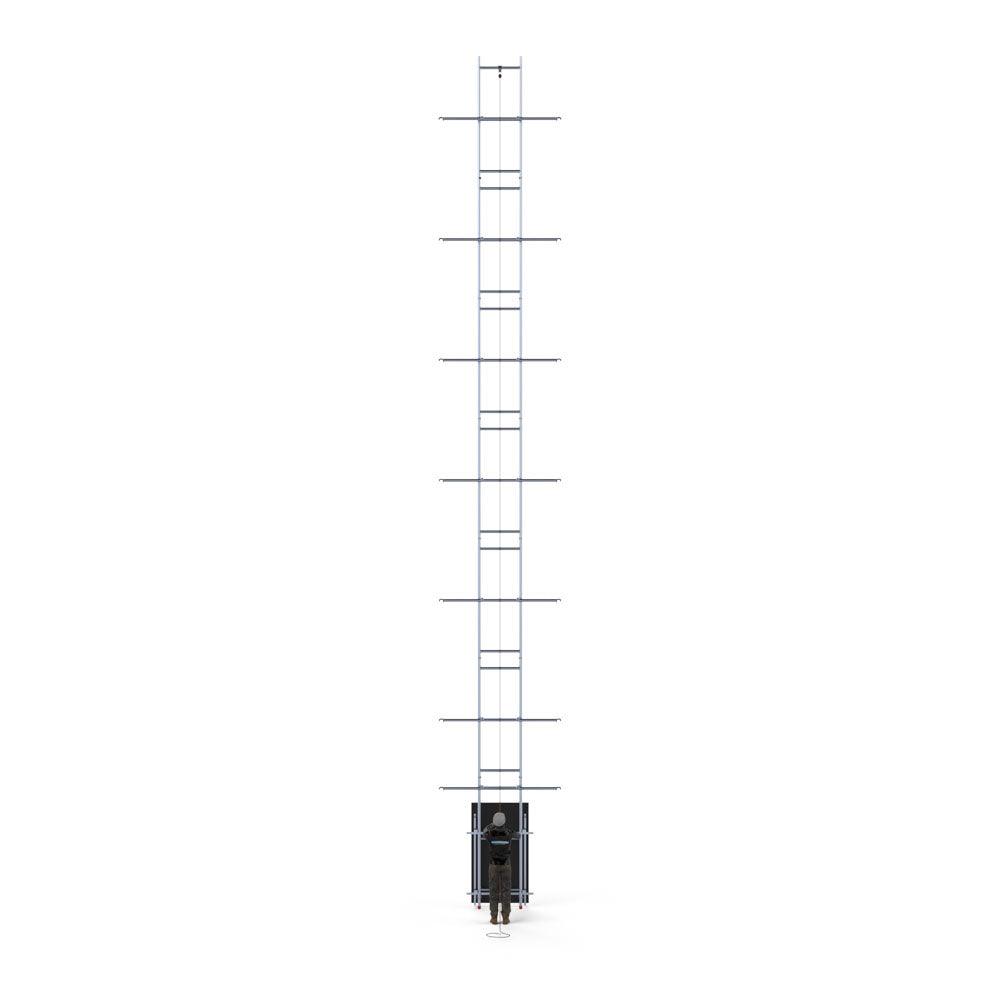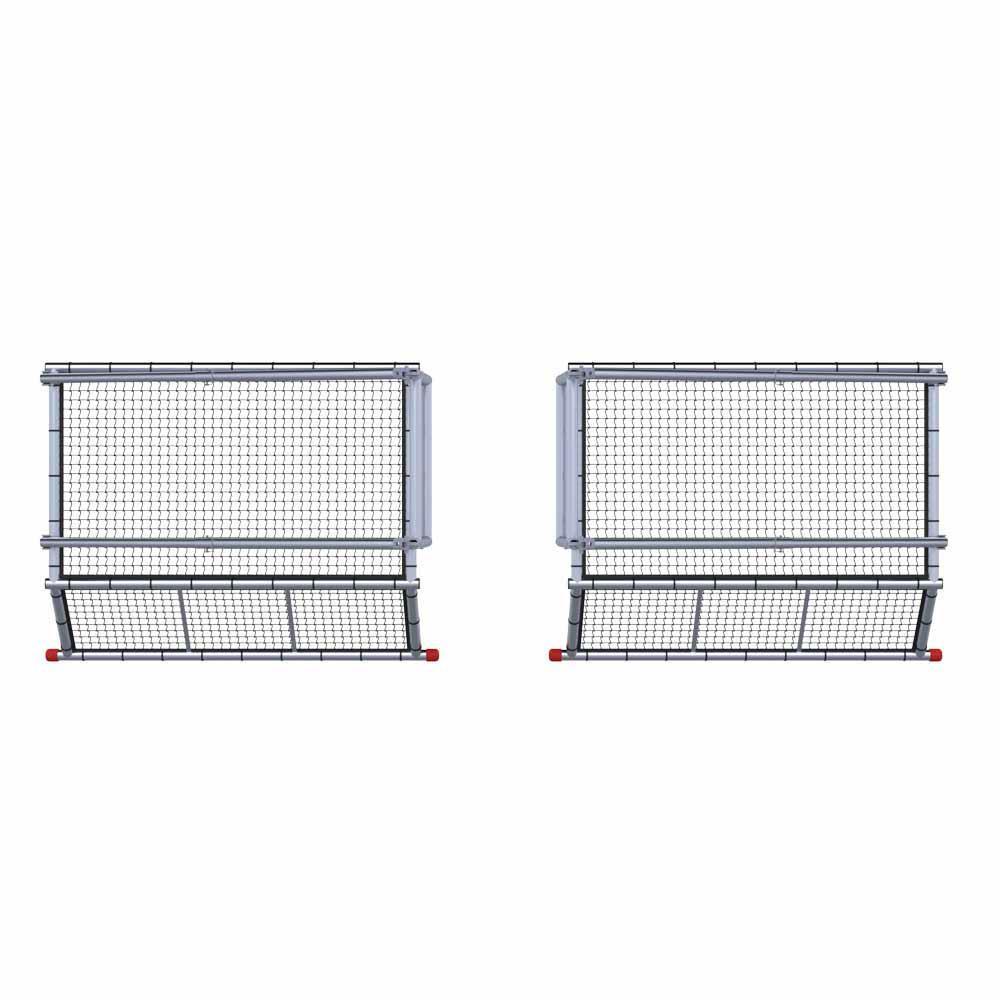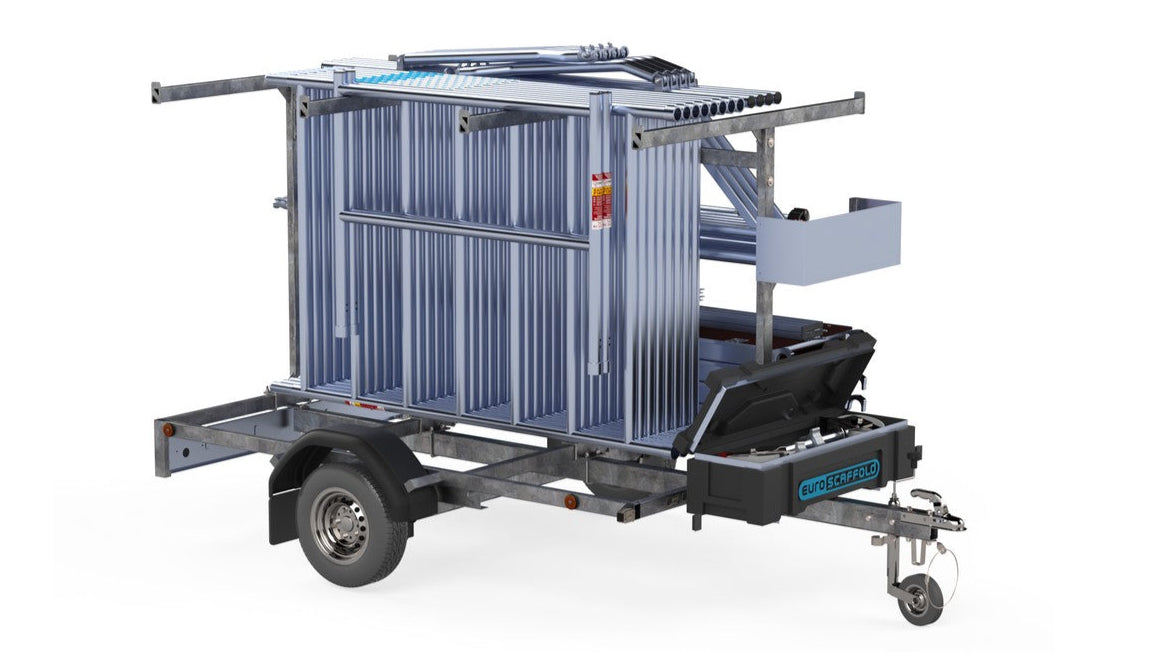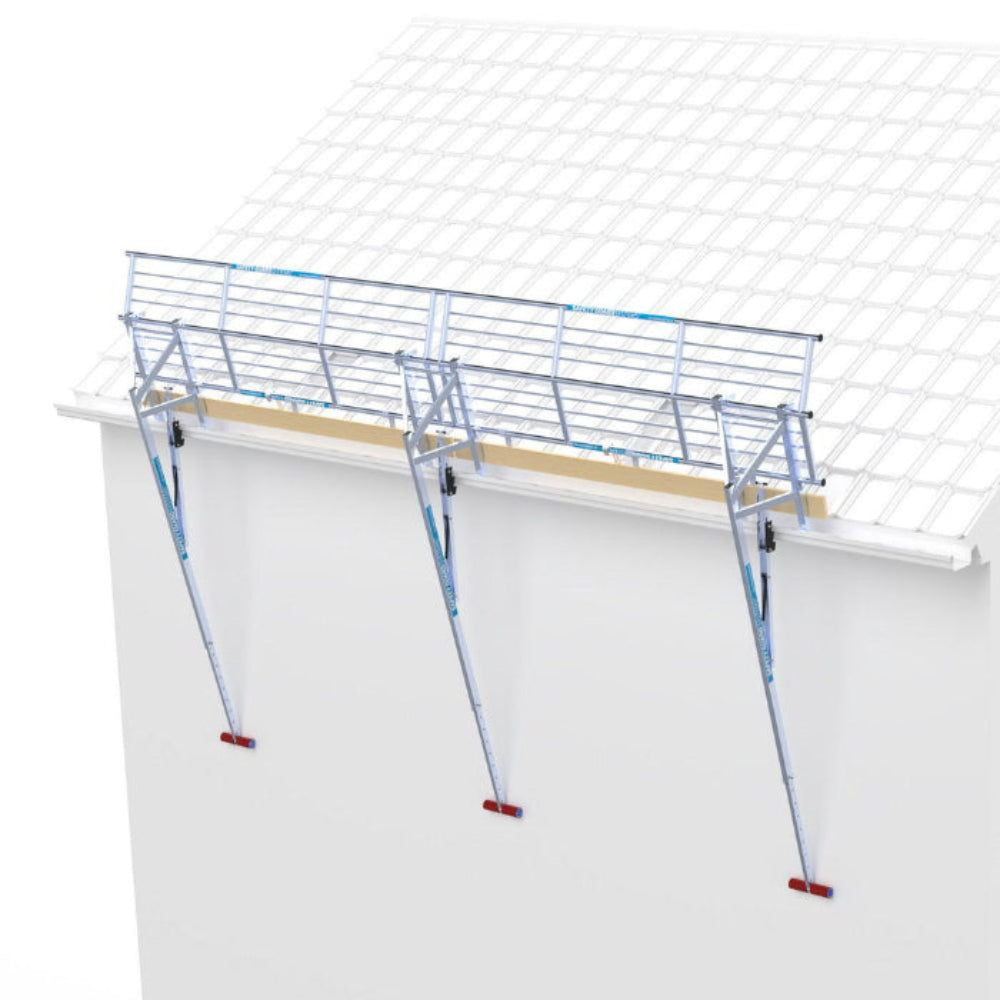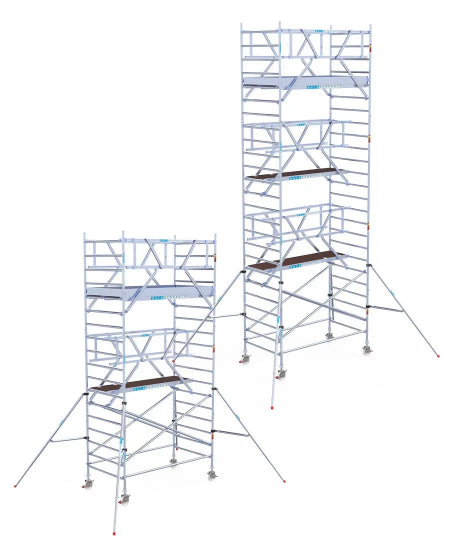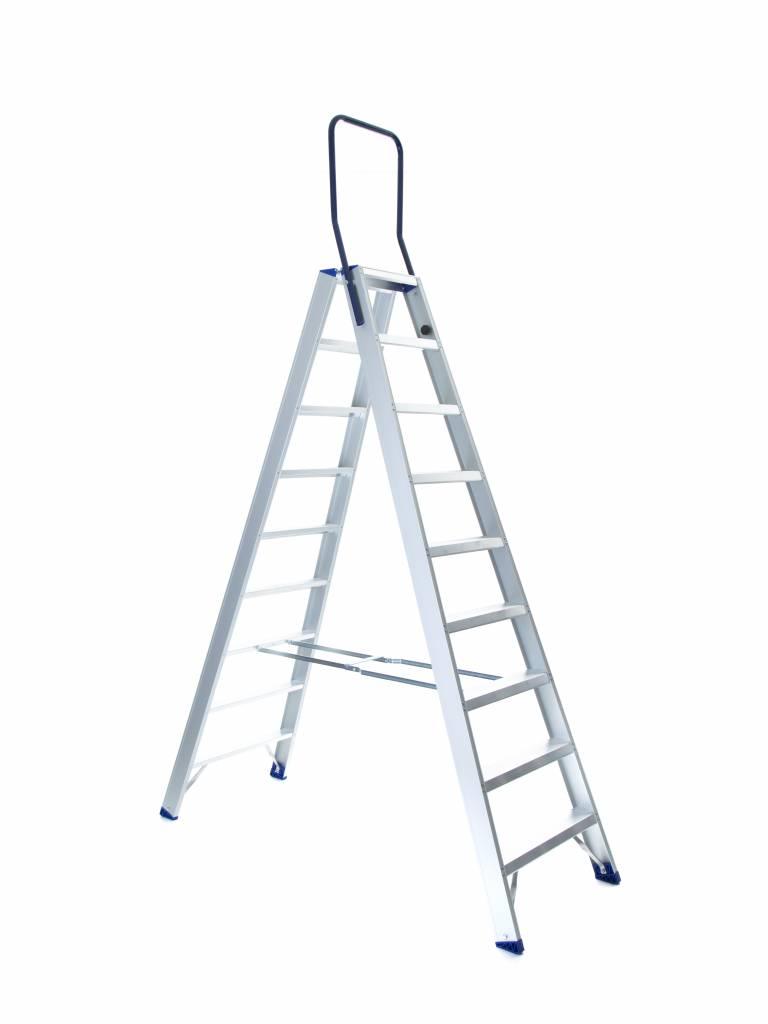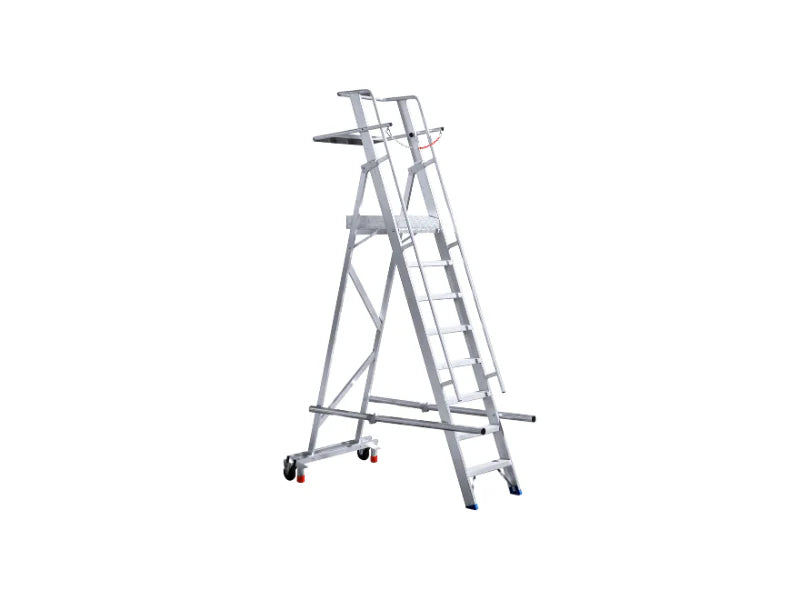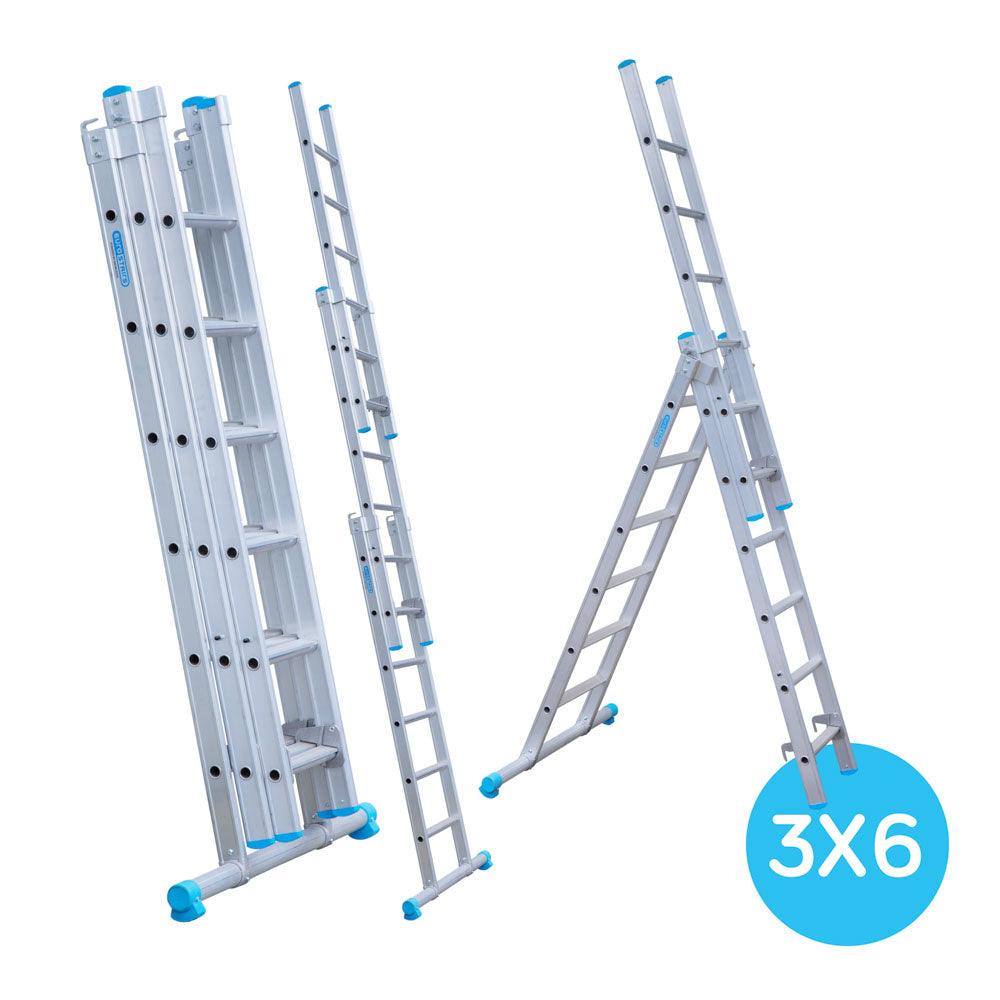Rental conditions of Safakoglu & Karahan GbR (exclusively for entrepreneurs)
The following terms and conditions apply exclusively to the rental of mobile scaffolding, roof fall protection, verge protection and other equipment by Safakoglu & Karahan GbR (hereinafter referred to as "lessor") to entrepreneurs within the meaning of Section 14 of the German Civil Code (hereinafter referred to as "tenant").
ATTENTION: These rental conditions are not suitable for rental to consumers.
1. Scope
1.1 These General Terms and Conditions (hereinafter "GTC") of Safakoglu & Karahan GbR (hereinafter "Lender") apply exclusively to rental agreements for the rental of equipment to an entrepreneur within the meaning of Section 14 of the German Civil Code (hereinafter "Tenant").
1.2 The lessor rents to the tenant the equipment specified in the rental agreement, such as mobile scaffolding, roof fall protection, or verge protection. A rental agreement is only concluded upon written or textual confirmation (e.g., email) of the rental order by the lessor.
1.3 These rental terms and conditions apply to all rental agreements, unless otherwise agreed in the rental agreement. Any terms and conditions of the tenant that contradict or deviate from these terms and conditions will only be accepted with the express written or textual consent of the landlord. These terms and conditions also apply to future rental agreements between the parties, unless other terms and conditions are expressly agreed upon.
2. Handover and transport
2.1 The rental equipment will be made available to the tenant for collection at the lessor’s warehouse.
2.2 The transport of the rental equipment to the lessee and its return to the lessor are at the lessee's expense and risk, even if the lessor organizes or arranges the transport. The lessee is responsible for the proper loading, load securing, transport, and unloading of the rental equipment.
2.3 The Lessee shall ensure unobstructed access to the loading, deployment, and return points. Waiting times at these locations, loading and unloading times, as well as costs for instruction or assembly and dismantling of the equipment by the Lessor at the Lessee's request shall be borne by the Lessee and billed according to actual costs.
2.4 Special services such as partial transport or the provision of lifting equipment will only be carried out upon written request of the Lessee and will be charged separately.
2.5 Loading and unloading
If the renter requests delivery of the rental equipment by the lessor or a third party commissioned by the lessor, the renter is responsible for loading and unloading the rental equipment at the delivery and collection locations. The renter shall provide the necessary personnel and suitable equipment at his own expense. Waiting times resulting from unavailability of the lessor, as well as any additional costs resulting therefrom, shall be borne by the renter.
3. Condition and use of the rental equipment
3.1 The rental equipment is provided in perfect, functional condition with all necessary accessories. The rental equipment may be new or used. There is no right to claim new equipment.
3.2 The lessee may inspect the rental equipment before the start of the rental period. Upon handover or receipt, the lessee confirms the condition and quantity of the rental equipment by signing a handover protocol, delivery note, or by accepting it from the carrier without damage. Obvious defects must be noted therein. Defects discovered later must be reported to the lessor immediately. If the lessee fails to report any defects immediately, the rental equipment is deemed to have been accepted as free of defects and in perfect condition, unless the defect was not apparent upon handover.
3.3 The Lessor may affix advertising or proprietary notices to the rental equipment. The Lessee may not remove or obscure any advertising or proprietary notices belonging to the Lessor. The Lessee's own advertising requires the Lessor's prior written consent.
3.4 The Lessor may exchange the rental equipment for equivalent equipment during the rental period, provided that this does not impair the use of the equipment and the Lessee's legitimate interests are protected.
3.5 Defects reported upon handover or immediately thereafter that impair usability will be remedied by the Lessor at its own expense. The Tenant shall give the Lessor the opportunity to remedy the defects. Independent repairs or remedying of defects by the Tenant are only permitted with the prior consent of the Lessor or in the event of the Landlord's delay in remedying the defects or in the event of imminent danger. In such cases, the Tenant is entitled to reimbursement of the necessary expenses.
4. Rental period and return
4.1 The rental period begins upon availability for collection, handover to the carrier, or the time specified in the rental agreement, whichever occurs first. Specified delivery or availability dates are non-binding unless expressly confirmed as binding.
4.2 The minimum rental period is one week. Termination during the agreed rental period is excluded. The rental period ends upon return of the rental equipment to the lessor's warehouse during its business hours.
4.3 If the rental equipment is not returned on time at the end of the agreed rental period, the rental period will automatically be extended weekly. Partial weeks will be charged in full.
4.4 The renter shall return the rental equipment at the end of the rental period, at his or her own expense and risk, in a clean, undamaged, and functional condition. Returns shall be made to the agreed location during the lessor's business hours. If the equipment is in an untransportable condition or access to the agreed return location is not possible, the rental period shall be extended until it is returned in good condition, and the renter shall bear the costs of any necessary additional travel or recovery.
4.5 Rental equipment that is incomplete, damaged, or improperly cleaned will be charged to the renter based on the actual cost of repair or cleaning, or the pro rata replacement value in the case of loss or total damage. The renter is entitled to provide evidence that lesser or no damage or cleaning costs were incurred.
4.6 Early return
Early return or collection of the rental equipment by the renter does not terminate the rental agreement before the end of the agreed rental period. The renter remains obligated to pay the agreed rent for the entire rental period. A refund or reduction in rent due to shortened use is excluded.
5. Tenant’s obligations
5.1 The renter is obliged to treat the rental equipment with care and to use it exclusively for its intended purpose.
5.2 Damage or malfunctions must be reported to the landlord immediately. If the tenant fails to do so, he or she will be liable for any resulting damages.
5.3 Downtimes during necessary repairs or maintenance shall not entitle the lessee to a rent reduction unless the downtime is due to an initial defect or a defect for which the lessor is responsible.
6. Loss and damage
6.1 The renter is liable for all damage and loss to the rental equipment that occurs during the rental period, unless he proves that the damage was not his responsibility.
6.2 In case of loss or total damage of the rental equipment, the renter shall reimburse the replacement value.
6.3 In case of theft, the tenant is obliged to report it to the police immediately and to inform the landlord.
7. Rent payments
7.1 The amount of the rent is determined by the respective rental agreement. Rent is due in advance without deduction.
7.2 If the tenant defaults on payment, the landlord is entitled to charge default interest at the statutory rate.
7.3 The tenant shall only be entitled to rights of set-off or retention if his counterclaims are undisputed or have been legally established.
8. Extraordinary termination
8.1 The lessor is entitled to terminate the rental agreement without notice if the lessee defaults on payment of the rent, uses the rental equipment in breach of contract or culpably breaches his contractual obligations.
8.2 In the event of extraordinary termination, the Lessor shall be entitled to take back the rental equipment immediately.
9. Liability
9.1 The Lessor's liability for damages – regardless of the legal basis – is excluded unless liability is mandatory, e.g., under the Product Liability Act, in cases of intent or gross negligence, injury to life, body or health, or breach of essential contractual obligations.
9.2 In the event of a breach of essential contractual obligations, the Lessor’s liability is limited to the foreseeable damage typical for the contract, unless there is intent or gross negligence.
10. General provisions
10.1 Amendments and additions to this Agreement must be made in writing. This also applies to the waiver of this written form requirement.
10.2 Should individual provisions of these Terms and Conditions be or become invalid, the validity of the remaining provisions shall not be affected. In place of the invalid provision, the valid provision shall be deemed agreed that most closely approximates the economic purpose of the invalid provision.
11. Applicable law and place of jurisdiction
11.1 The law of the Federal Republic of Germany applies.
11.2 The exclusive place of jurisdiction for all disputes arising out of or in connection with this Agreement shall be, to the extent permitted by law, the registered office of the Lessor.


